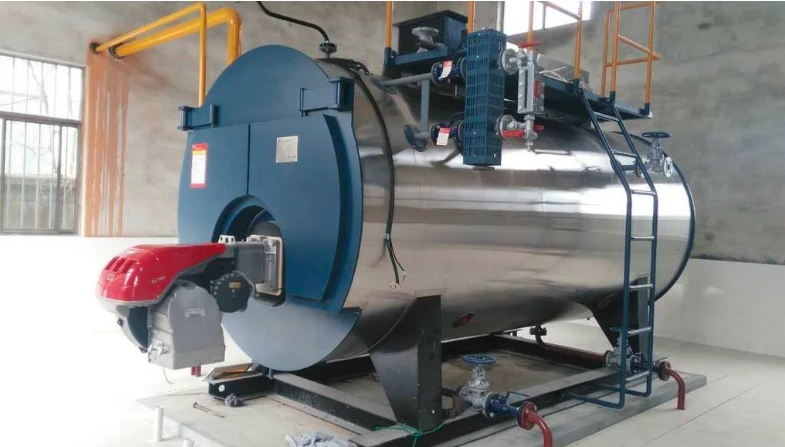
Nov . 09, 2024 12:36 Back to list
Troubleshooting a Boiler Without Hot Water in Simple Step-by-Step Guide
How to Fix a Boiler with No Hot Water
If you're finding yourself in a situation where your boiler is running but not providing hot water, it can be frustrating. Fortunately, there are several steps you can take to troubleshoot and potentially fix the issue before calling a professional. This article will guide you through some common problems and solutions for a boiler with no hot water.
1. Check the Thermostat Settings Start by checking your thermostat settings. It should be set to a temperature high enough to produce hot water. Typically, the thermostat should be set between 120°F to 140°F (49°C to 60°C) for optimal performance. If it's set too low, simply adjust it to a higher setting and wait to see if hot water begins to flow after some time.
2. Inspect the Pressure Gauge Most boilers have a pressure gauge that indicates the water pressure within the system. The ideal pressure level is typically around 1 to 1.5 bar when the boiler is off. If the pressure is below this range, it could be the reason why your boiler isn’t providing hot water. To rectify this, you can add water to the system using the filling loop on your boiler. Ensure the pressure is restored to the correct level.
3. Look for System Leaks Inspect your boiler and the surrounding areas for any visible leaks. Leaks can cause a drop in pressure, which may result in a lack of hot water. If you find any leakage, it may require immediate attention. Depending on the severity of the leak, you may be able to tighten fittings or replace a faulty component. If you’re not comfortable doing this, it’s advisable to call a professional plumber.
4. Examine the Pilot Light and Valves For gas boilers, ensure that the pilot light is lit. If it's gone out, you will need to follow your boiler’s instruction manual to safely relight it. Additionally, check the gas supply valve to make sure it’s open. If you detect any issues with gas supply or pressure, contact your gas supplier immediately.
how to fix a boiler with no hot water

5. Assess the Diverter Valve In combination boilers, the diverter valve directs hot water either to your heating system or to your taps. If this valve is stuck or malfunctioning, it may not redirect hot water correctly. If you suspect the diverter valve is the culprit, you might need to replace it, which can be a bit complex. Consulting a qualified technician for this repair is often a wise choice.
6. Check the Heating Element If you have an electric boiler, the heating element may be faulty. To check this, you could inspect the connections and ensure there are no visible signs of wear or damage. If you have a multimeter, you can test the element for continuity; if it fails this test, it will need to be replaced.
7. Review the Wiring and Fuse Electrical issues can also be a cause of a boiler failing to produce hot water. Inspect the wiring for any signs of damage or loose connections. Check the fuse box for any blown fuses that might affect the system. If you find any blown fuses, replace them and see if that restores hot water.
8. Reset the Boiler Sometimes, a simple reset can fix the problem. Most modern boilers have a reset button that can resolve minor faults. Consult your user manual for the location of the reset button and instructions on how to perform this action.
9. Call a Professional If you've run through these troubleshooting steps without success, it may be time to call in a professional. They have the expertise and tools to diagnose and fix the issue safely and effectively. Ignoring the problem could lead to further complications or even damage to the system, so it is best to address the issue promptly.
Conclusion Experiencing issues with your boiler can be stressful, particularly when it means no hot water. By following the steps above, you may be able to identify and resolve the issue without needing to call a professional. However, if you are ever in doubt, especially concerning gas or electricity, it’s always safest to consult an expert. Regular maintenance can also help prevent such issues in the future, ensuring your boiler runs efficiently all year round.
-
High-Efficiency Commercial Oil Fired Steam Boiler for Industry
NewsJul.30,2025
-
High-Efficiency Biomass Fired Thermal Oil Boiler Solutions
NewsJul.30,2025
-
High Efficiency Gas Fired Thermal Oil Boiler for Industrial Heating
NewsJul.29,2025
-
High-Efficiency Gas Fired Hot Water Boiler for Sale – Reliable & Affordable
NewsJul.29,2025
-
High Efficiency Biomass Fired Hot Water Boiler for Industrial and Commercial Use
NewsJul.29,2025
-
High-Efficiency Biomass Fired Hot Water Boiler for Industrial Use
NewsJul.28,2025
Related PRODUCTS






















